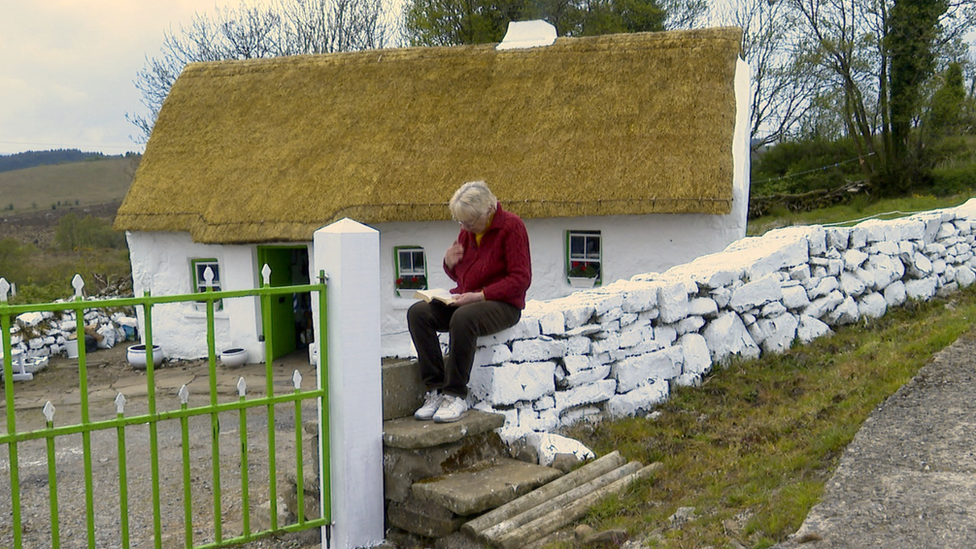'We run our homes without mains electricity'
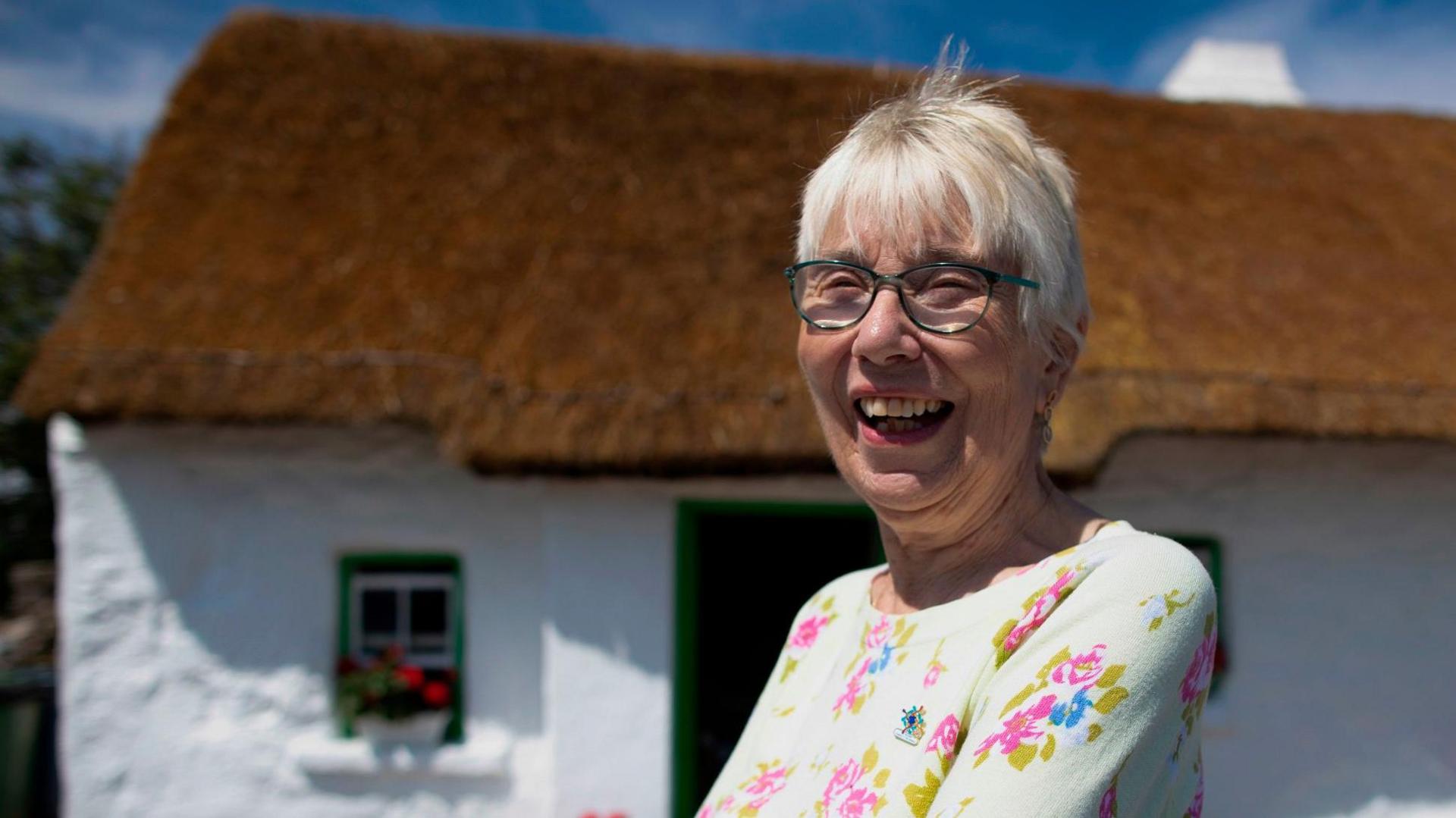
Margaret Gallagher, 83, has lived her whole life without electricity or running water
- Published
The widespread power cuts caused by Storm Éowyn were a reminder of how dependent we have become on our electricity supply for everyday living.
But there are a hardy few who already live their lives "off-grid", getting by just fine without mains electricity or mains water.
Among them is 83-year-old Margaret Gallagher, who still lives in the thatched cottage outside Belcoo in County Fermanagh, where she was born in 1942.
Her 200-year-old home has no running water, no central heating, no fridge, nor any of the other mod cons most people would consider essential.
The pensioner has survived many storms in Mullylusty Cottage, but admitted to being "absolutely petrified" by Éowyn.
"I was afraid the roof would come in," she told BBC News NI.
"But when it was over I was the only one that could cope because I had a fire, I had water, I had light.
"I had everything because I'm totally off the grid."
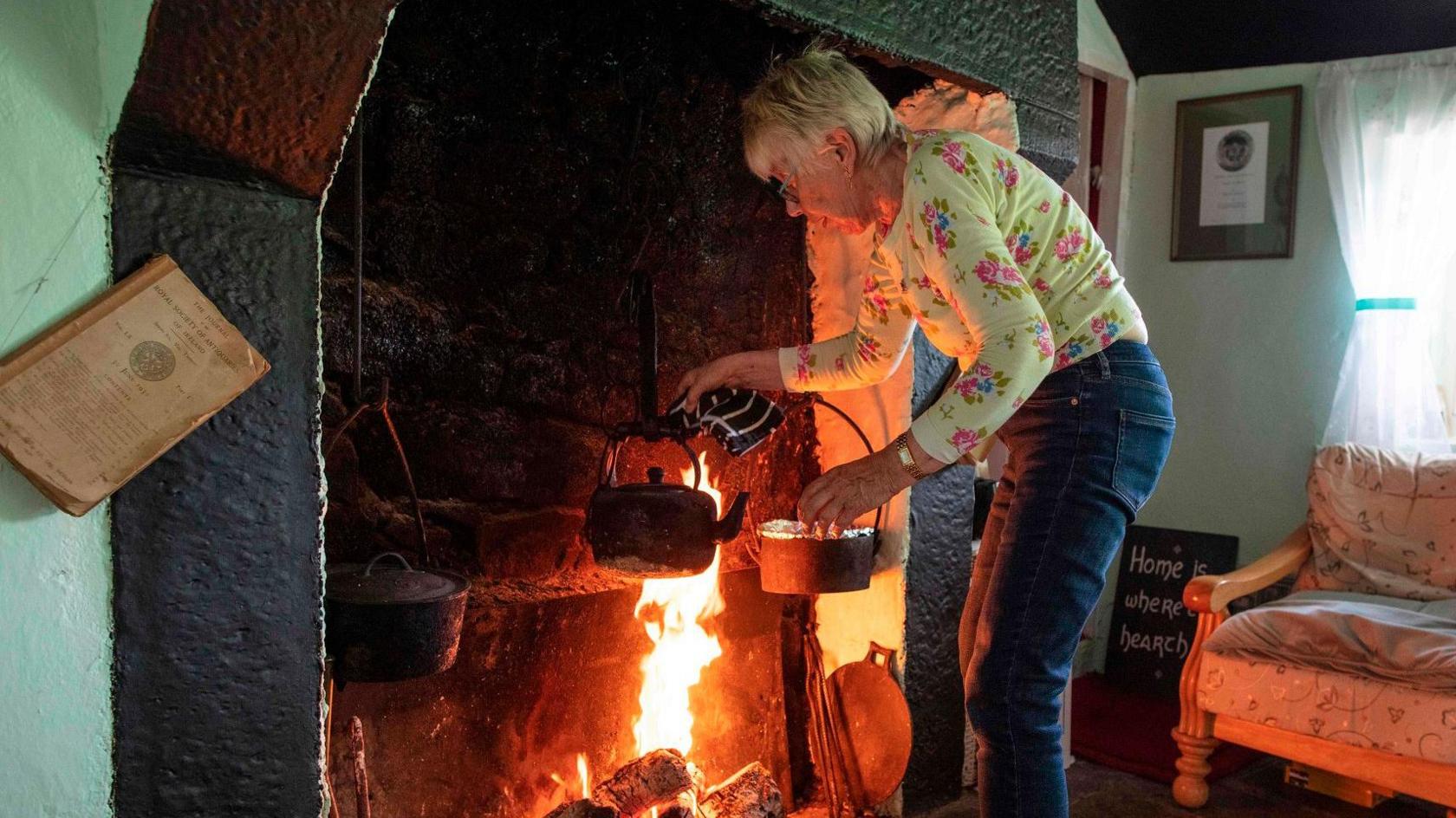
Margaret pictured cooking at her fireplace in July 2019
Margaret was 10 years old when her mother died and after that she became a carer for her disabled father until his death in 1980.
Money was scarce and their home was never modernised.
So since childhood, Margaret's daily routine has involved fetching buckets of drinking water from a nearby well.
The fireplace in her sitting room is her only source of heating, but she also uses that hearth to cook food in cast iron pots.
In the evenings, she uses candles and paraffin lamps for light and keeps herself entertained with her battery-powered radio and her library of books.
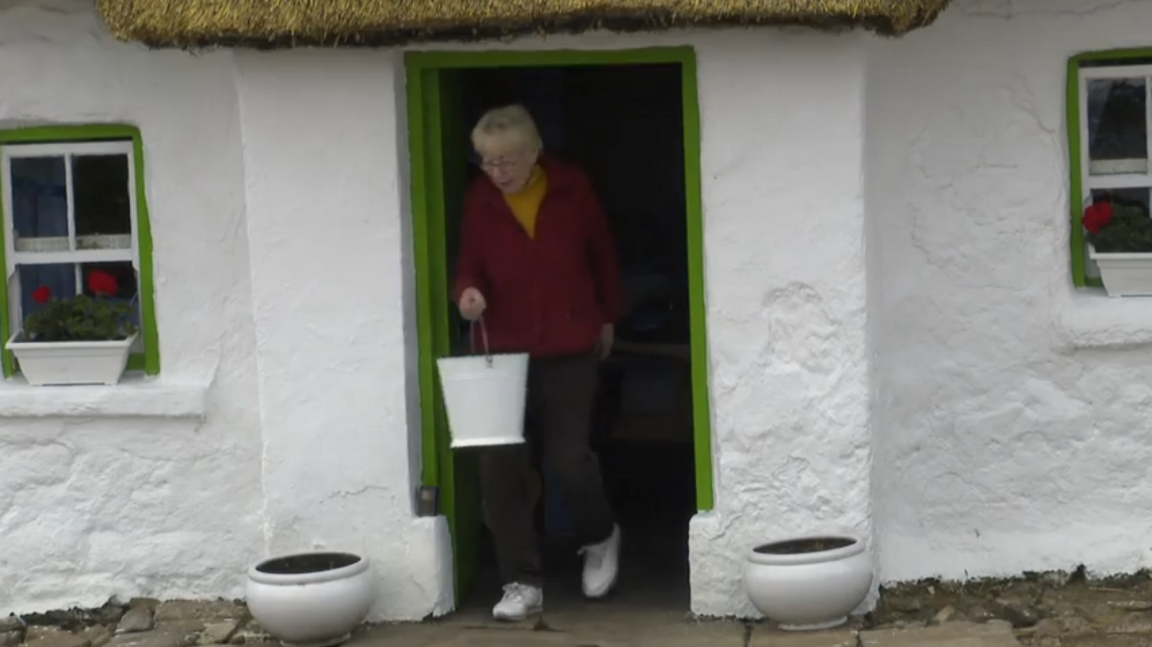
Margaret told BBC News NI she still makes daily trips to her spring well to fetch drinking water
'I'm as warm as toast'
In the aftermath of Storm Éowyn, Margaret supplied her neighbours with fresh drinking water.
She also provided a warm welcome to visitors who had no heat at home.
"It's great to have a fire and the kettle boiling when they come," she said.
"But I prepared well for it – I got in candles and I got in paraffin oil, and I got in all the groceries - and I use long-life milk.
"And I had logs and turf and firelighters."
Many householders found it difficult to sleep without power on these cold winter nights, but not Margaret.
"I have two hot water bottles, I have one at my feet and one at my head," she explained.
She also piles on the layers, sleeping under four duvets.
"I'm as warm as toast and I keep on the fire all night."
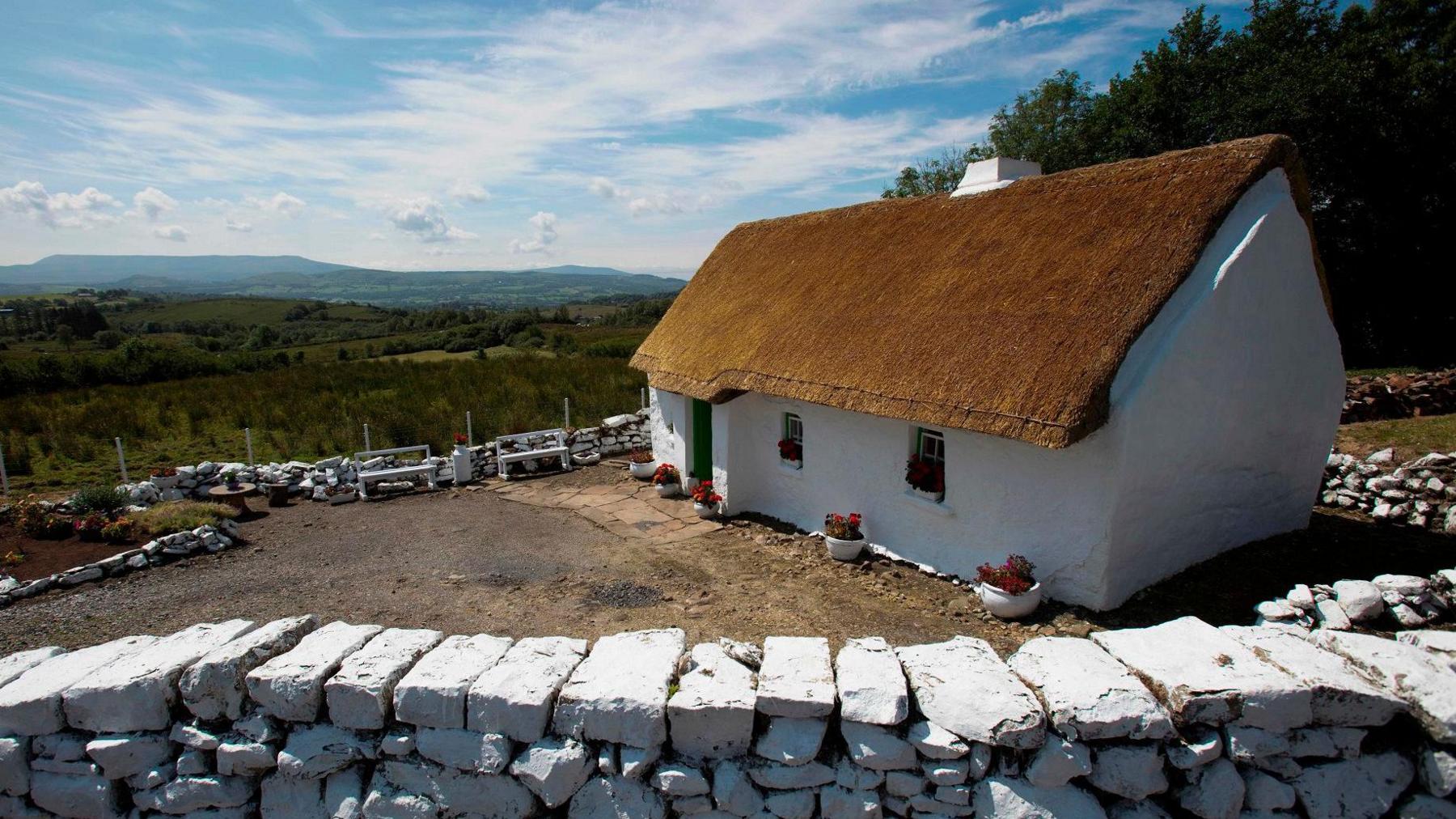
Margaret's home, Mullylusty Cottage, was built in the 1820s and bought by her grandparents in 1887
Having never had the basic household services most of us take for granted, Margaret does not miss them.
"Quality of life is more important than standards of living," she said.
"The house bears the footprints of my forefathers – the house to me is on hallowed ground."
Keeping Mullylusty Cottage in its original state has meant it is now considered a heritage site of "international interest".
A proud custodian of this listed historic building, Margaret said: "The house now is my sanctuary and I just love it."
'We could go without the mains completely'
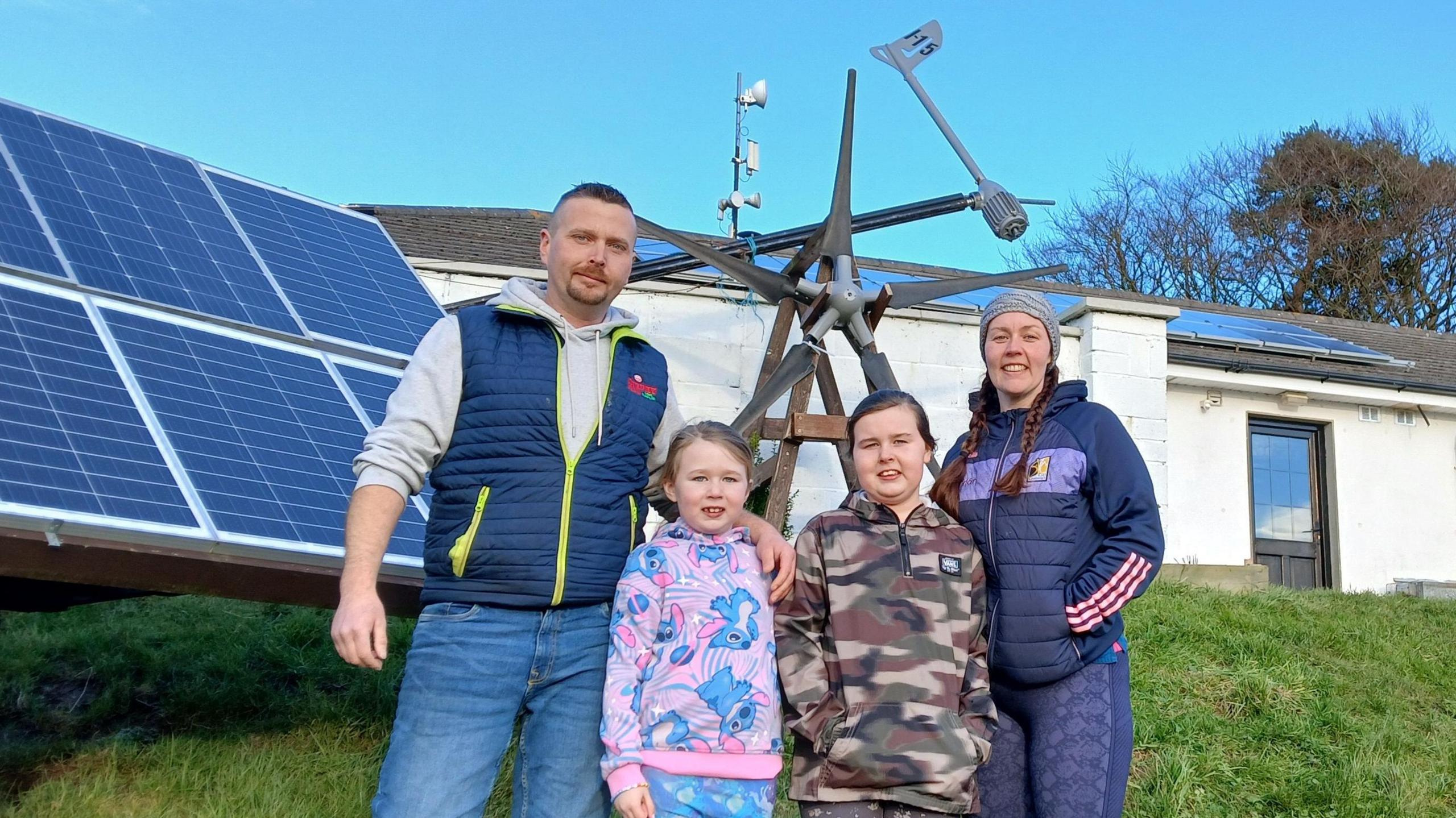
The Wilkinson family live in a self-powered home that can be disconnected from the grid
But is there an easier way to be self-sufficient?
Michael Wilkinson lives with his wife and children in a house overlooking the Suir Valley in County Kilkenny.
When they moved in six years ago, they faced rapidly rising energy bills and frequent power cuts which Michael said were "very frustrating".
In response, the 41-year-old mechanic spent the past two years building his own energy system to wean his home off its reliance on Ireland's national grid.
"We just kept adding and adding to it until we had enough that we could go without the mains completely," Michael explained.
His design includes 36 solar panels spread across his roof and around his garden.
"We incorporated a wind turbine into the system and, again, I built the mast and everything for that myself," he said.
"The whole thing operates basically with solar as the priority, wind as a backup then, when there's no sun and no wind, there's the petrol generator".
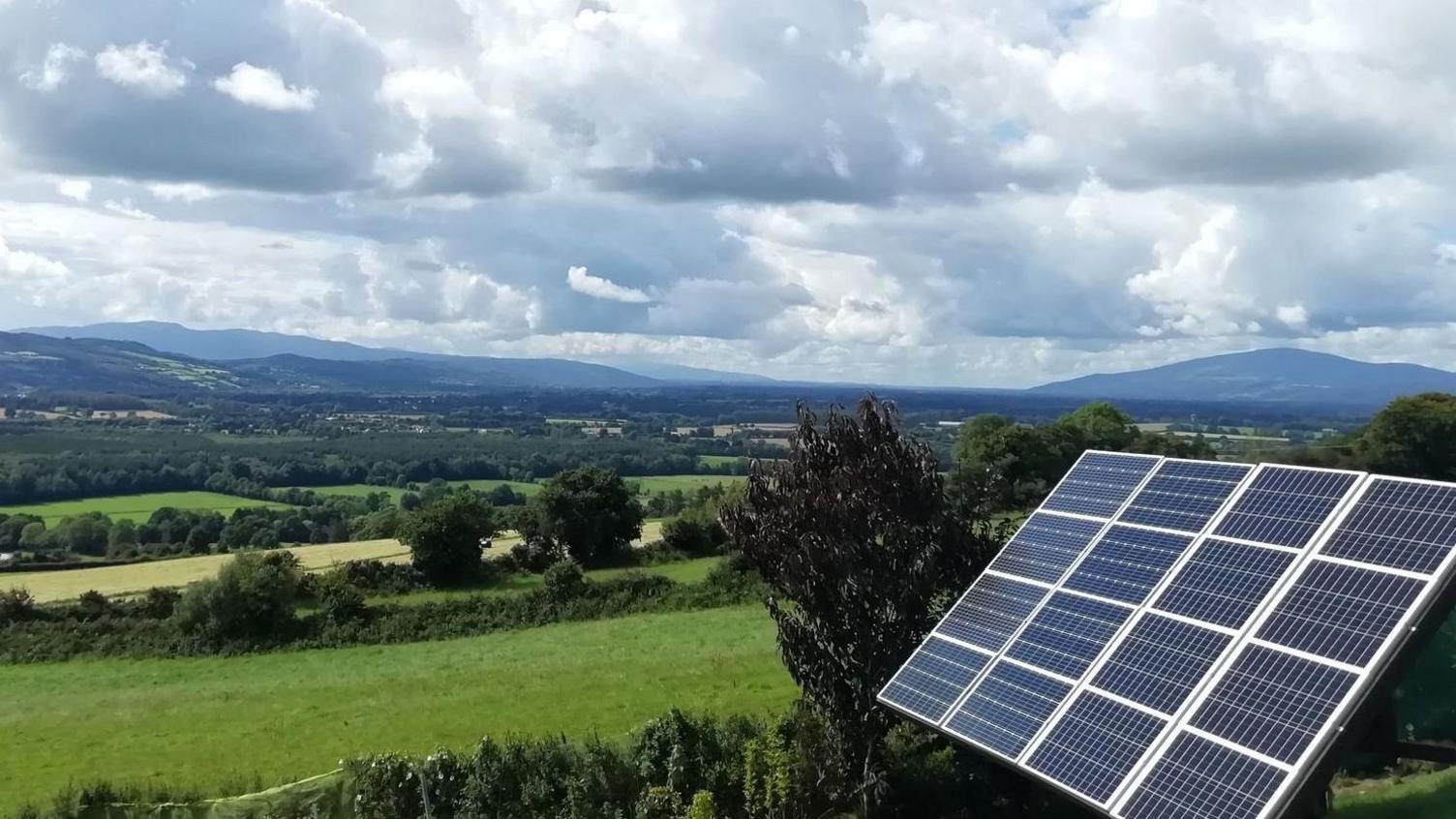
Some of the 36 panels in use around the Wilkinsons' home which overlooks the Suir Valley
'My bills have fallen by up to 80%'
He bought the generator solely for emergencies because the fuel is more expensive than using mains electricity.
For that reason he uses a "change-over switch" which can either isolate or reconnect his home to the grid whenever necessary.
His system not only protects their home from power outages - his electricity bills have plummeted.
"You're always going to have your connection charge anyway so you'll never get a bill of zero, but it's taken our bills down roughly about 75 to 80 per cent," he said.
"Most of the time we run completely off-grid.
"It's only as I say when you have those prolonged periods of no sun and no wind where we use a change-over switch".
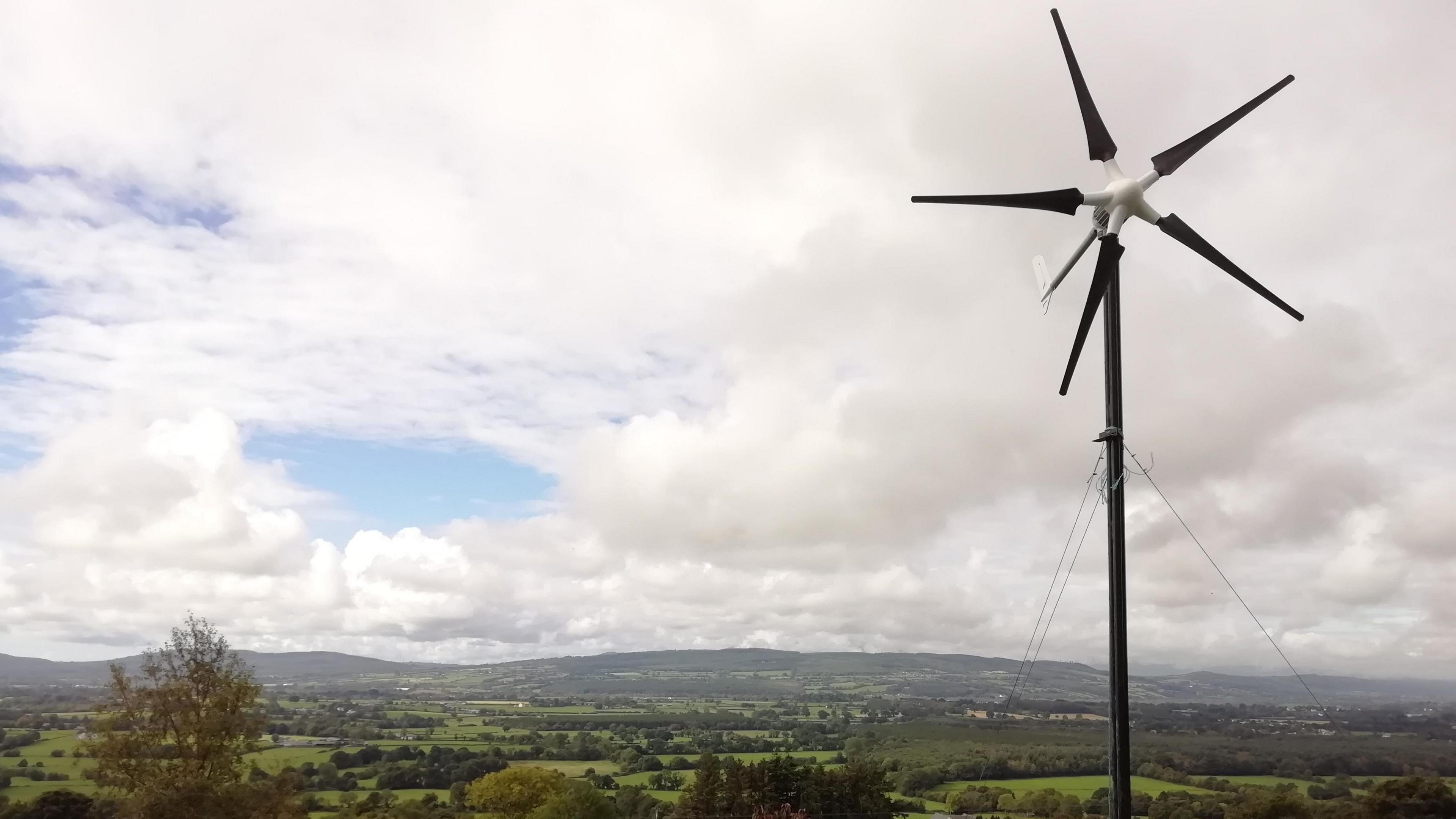
Michael Wilkinson built and installed his own wind turbine in his garden
Their home is not connected to a mains water supply so they use self-generated power to pump water in from a well.
They also use an open fireplace with a back boiler which heats their radiators and provides hot water for showers.
The tech-savvy couple also document their DIY efforts on YouTube.
"There's very little difference between a modern off-grid life and what I suppose you'd call a normal on-grid life.
"You're just simply generating the power yourself," Michael said.
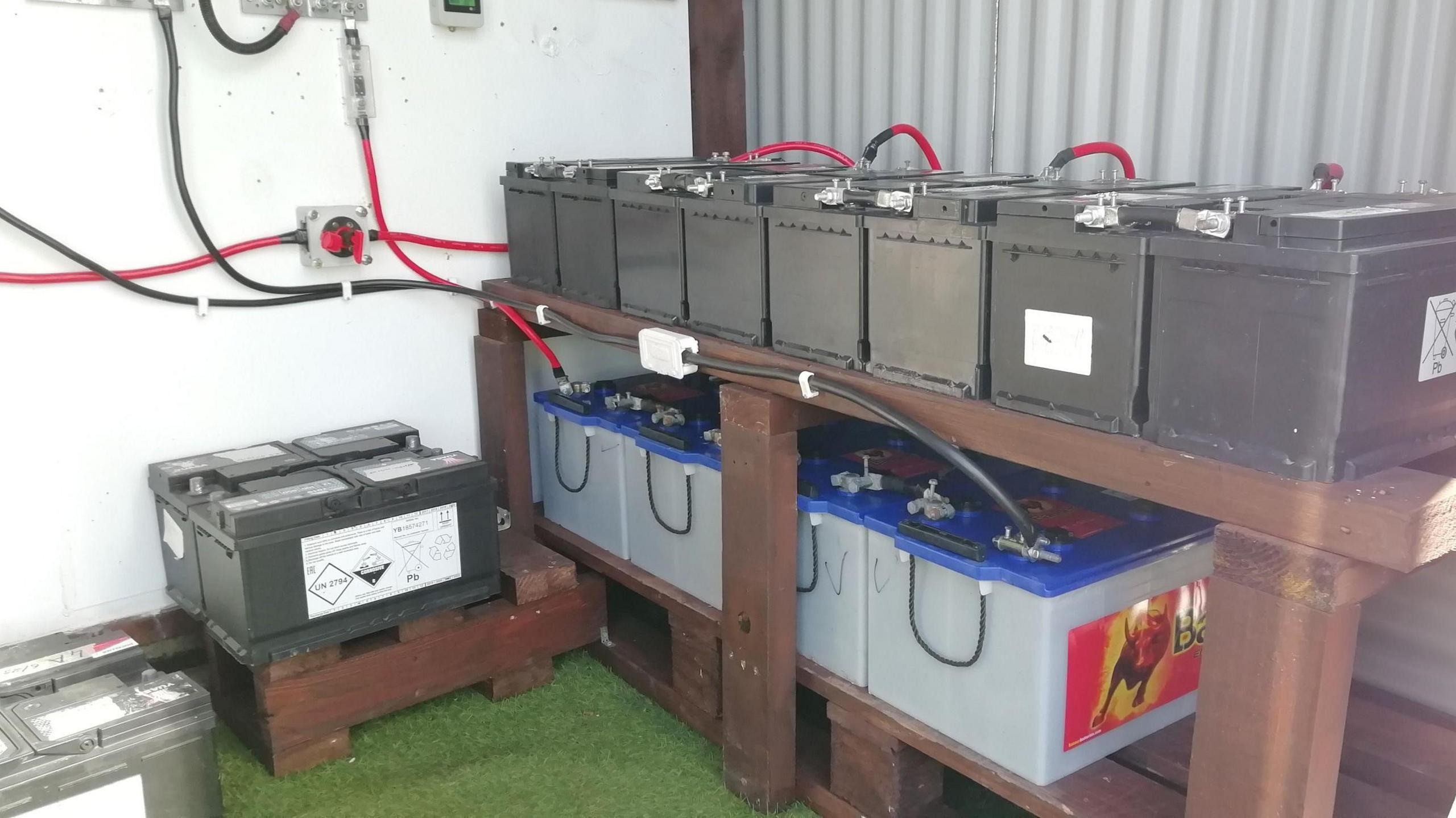
Michael has installed a battery bank to store his self-generated energy for domestic use, rather than letting it all go back into the grid
But all this equipment comes at a cost and Michael estimates they have spent about €6,000 (£5,030) over two years installing the system, excluding wiring.
"We didn't get out loans or do it through any line of credit, we basically just saved up a little bit every month, adding a bit more to the system as we go along."
The Wilkinsons also keep costs down by growing their own vegetables and keeping chickens for eggs and meat.
But there are still some goods Mother Nature refuses to provide in an Irish climate.
"It's very difficult to grow your own bananas. You'll always need to go to the supermarket for something," Michael says.
"There is a lot you can do but I don't think it's possible to be 100% self-sufficient without making some very hard sacrifices."
Related topics
- Published29 January
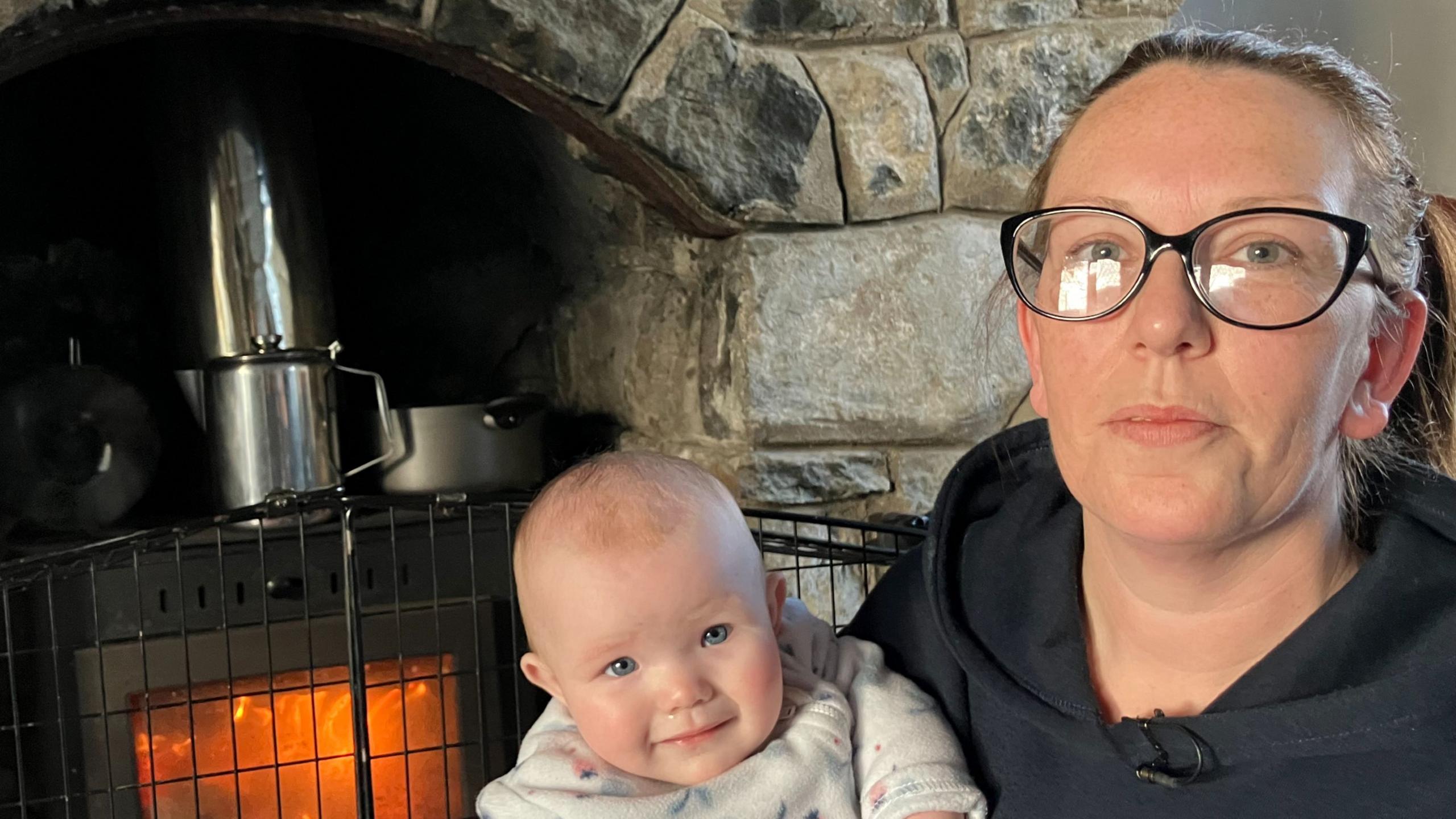
- Published1 October 2022
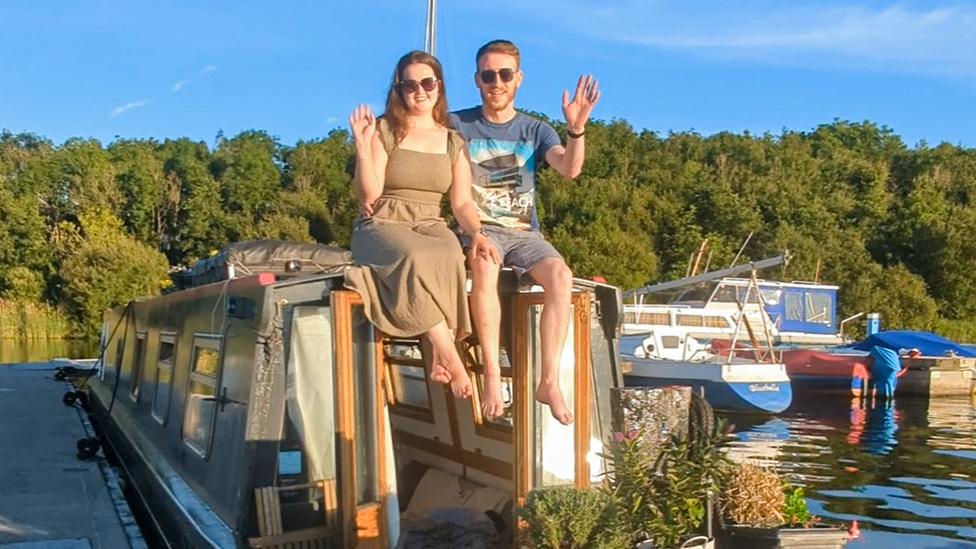
- Published26 May 2019
